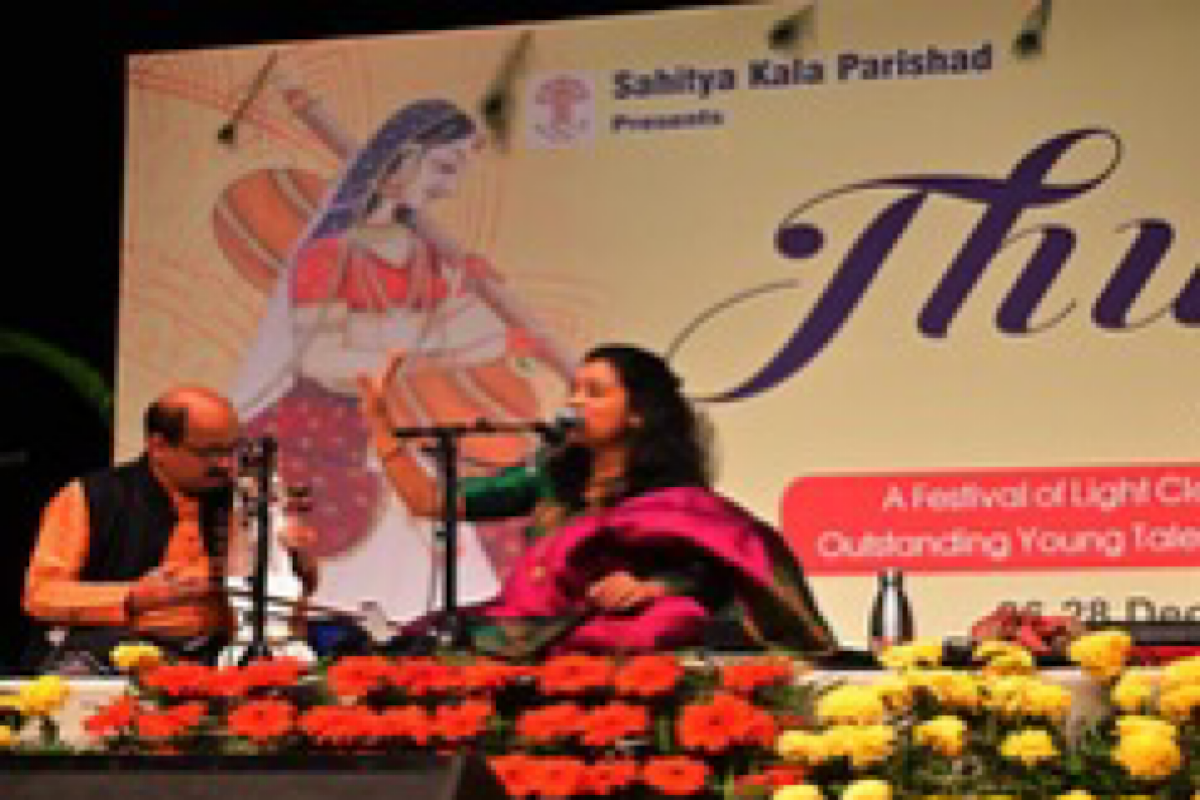Campus Torture
The horrific case of ragging and torture at a nursing college in Kerala is yet another grim reminder of the deeply ingrained culture of abuse in educational institutions.
The music of Thumri and Dadra resonated through the Kamani Auditorium as Sahitya Kala Parishad, Department of Art, Culture, and Language, Delhi Government hosted the annual Thumri Festival from 26th to 28th December 2023.

Sahitya Kala Parishad's Annual Thumri Festival Strikes a Harmonious Chord in Delhi
The music of Thumri and Dadra resonated through the Kamani Auditorium as Sahitya Kala Parishad, Department of Art, Culture, and Language, Delhi Government hosted the annual Thumri Festival from 26th to 28th December 2023. The festival, a three-day musical adventure, featured the best performers of Thumri, enthralling the crowd with performances that combined creativity and tradition.
Day One: A Symphony of Tradition and Creativity
Advertisement
The inaugural day commenced with the ethereal notes of Smt. Padmaja Chakraborty, skillfully intertwined the audience with the cultural richness of Thumri and Dadra. Her sublime fusion of tradition and innovation showcased enchanting renditions, starting with Thumri’s ‘Pardesi Balam, Preet Kiye Chala Jaaye’ in Raga Mishra, Kafi-Pilu, and Jat Taal. The mesmerizing evening continued with the soulful renditions of Padma Shri recipient, Dr. Soma Ghosh, from Banaras Gharana. She presented ‘Piya Ke Avan Ki Aas,’ ‘Aiso Nithur Mora Shyam Na Aaye,’ ‘Holi Khele Nahi Jaane,’ ‘Aare Rama Rimjhim Barse Paniya’ in Mishra Pilu Thumri, Khamaj Thumri, Raga Khafi, and Kajri Geet. She continued her performance with a Tappa- ‘Virade Janiya’ in Raag Kafi and concluded it with a Dadra- Humri Atariya Pe Aao’. The first day concluded with the captivating voice of Vidushi Ashwini Bhide Deshpande, representing the Jaipur-Atrauli gharana. She presented Bandish in Raag Des, followed by Nirguniya Bhajan in Taal Dadra. As the evening continued, she sang two Dadras in Raag Chandrakauns and Deepachandi Taal, respectively.
Advertisement
Day Two: Spellbinding Renditions and Musical Heritage
Pandit Vishwanath took center stage on day two, presenting soulful Thumris and poignant Dadras, leaving the audience captivated. Vidushi Shruti Sadolikar-Katkar followed, weaving an enchanting musical aura with her soulful performance presenting compositions like Kafi, Dadra, and Pilu, capturing the essence of Thumri with finesse and grace. The dynamic duo of Padmabhushan Pt. Sajan Misra and Shri Swaransh Mishra brought the curtains down on day two, showcasing the rich heritage of Benaras Gharana, performing Thumris in Mishra Khamaj in Dipchandi Taal, Mishra Tilang in Jat Taal, and Bhairavi in Addha Taal.
Day Three: A Grand Finale with Legends
The festival’s final day witnessed the vibrant vocal of Sushri Pooja Goswami who started her presentation with a traditional thumri ‘Nadia bairan bhai’ in Raag Des, followed by a Bandish ki thumri by Wajid Ali Shah ‘Mohan rasiya aaye bagiya’ and concluded with a Dadra ‘Kanha ne anguri maror dayi re.’ The evening continued with the distinct flair of Sushri Sucheta Ganguly. She started with a Thumri in Misra Khamaj – ‘Kare matware manharlino shyam’ then a Chaiti in Raga Misra Pahari – ‘Chait mas bolele Koyelia.’ This was followed by a Dadra in Raag Mishra Kausikdhwani – ‘Shayam tohe najaria lagjayegi’ and ended her performance with Mishra Shivranjani – ‘Pat rakho na rakho.’ The legendary Pandit Ajay Pohankar concluded the festival with a grand flourish. He sang Thumries such as ‘Bagon main pade zhoole,’ ‘Naina more taras gaye,’ and ‘Babul mora’ and many other in Ragas Khamaj and Kafi. The unique point of this recital was that he was collaborating with his son famous Indian classical Keyboardist Shri Abhijit Pohankar who is the only Indian to play classical music on a keyboard, thus bringing a new flavour to this genre. The father-son duo in last 2 decades have created a new audience all across the world for a liking for their albums like ‘Piya bawari’
The soul-stirring tunes of Thumri and Dadra were honoured during the Sahitya Kala Parishad’s Thumri Festival, which left an enduring impression on Delhi’s cultural landscape. This three-day annual celebration ensured Thumri’s continuous resonance in the hearts of music lovers across generations.
Advertisement